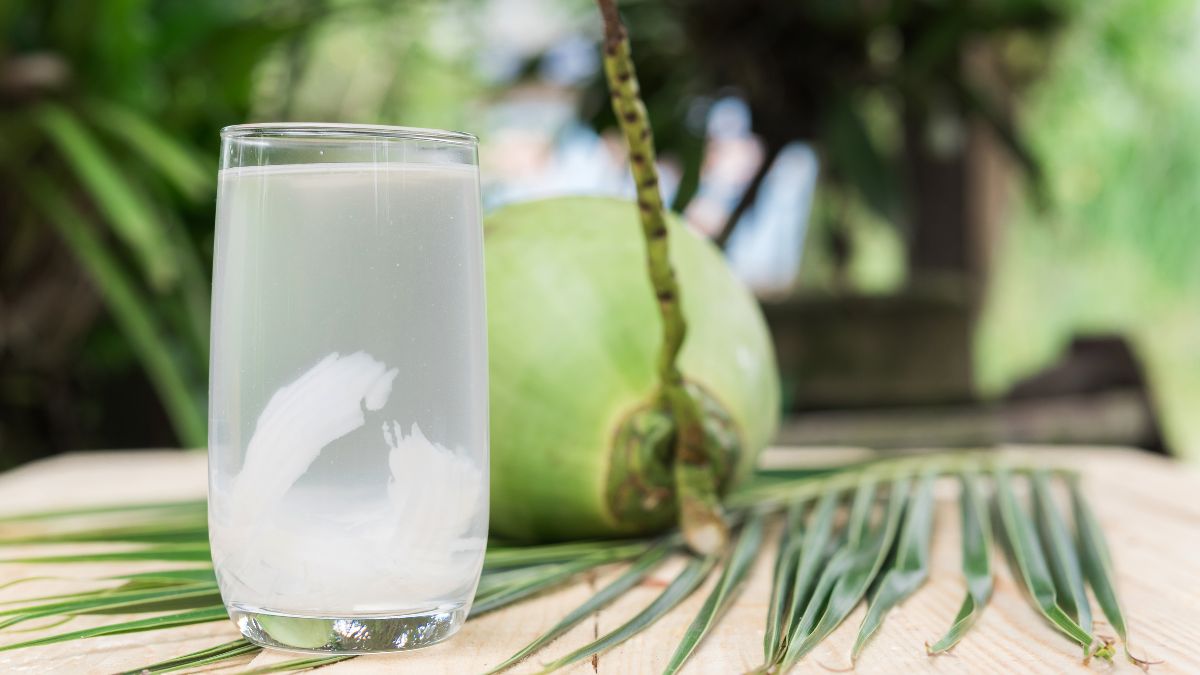- By Priyanka Munshi
- Sat, 16 Dec 2023 06:01 PM (IST)
- Source:JND
Do you know that drinking a single glass of coconut water on an empty stomach can be one of the most rejuvenating ways to start the day and has numerous health advantages? Since coconut water contains so many electrolytes, it might be especially helpful in keeping you hydrated after a long day. Coconut water is a better option than sugary drinks because it is low in calories and includes natural sugars.
It's also a fantastic source of potassium, which supports healthy muscles and the heart. Antioxidants have the potential to strengthen the immune system, according to WebMD.

Benefits Of Drinking One Glass Of Coconut Water On An Empty Stomach (Image Credit: Canva)
So here we have curated the many health benefits of drinking just one glass of coconut water for overall health.
Enhances Digestive Health
Natural diuretics found in coconut water are high in fiber and work wonders for reducing acid reflux and diarrhea. Iron, calcium, magnesium, and manganese are among its many nutrients. It may also help the body's pH equilibrium, according to NIH.
Also Read: 6 Easy-To-Do And Effective Yoga Poses For A Healthy Heart
Cures Hangover
Do you know that drinking too much alcohol causes the body to lose potassium? This potassium can be replaced with coconut water, which may help prevent hangovers.
Dissolves Kidney Stones
Consuming coconut water enhances renal function by removing excess potassium, citrate, and chlorine and minimizing oxidative stress. It also lowers the risk of kidney stones, avoids crystal deposition, and decreases urine crystals, according to NIH.

Benefits Of Drinking One Glass Of Coconut Water On An Empty Stomach. (Image Credit: Canva)
Treats Acne
Due to its high lauric acid content, coconut water has been thoroughly studied for its potential to heal acne, a bacterial skin ailment that causes inflammation.
Also Read: 5 Advantages Of Massaging Your Face With Coconut Oil At Night
Healthy Heart
With the potentially hazardous over-the-counter medication lovastatin, coconut water efficiently prevents cholesterol rises and preserves HDL levels even at high intake levels, according to NIH.
(Disclaimer: This article is for informational purposes only. It is not a substitute for professional advice, diagnosis or treatment.)

